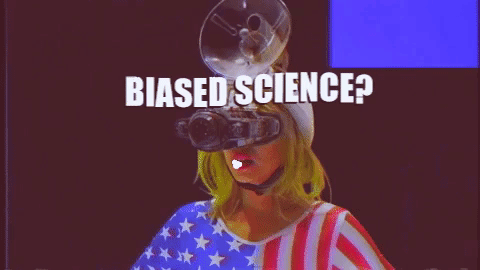Vaping science is still behind in the US, but it's catching up

to it's UK counterparts relatively quickly. The problem, or rather the difference is, in the US it seems as if our universities are focusing more on researching the risks rather than the benefits of eLiquids and vaping. You might think the science is the same, but the approach matters as it is usually tied closely with the findings.
There has been no shortage of scientific based research studies entirely debunked and later considered inconclusive, while we have also had some reliable and valid studies. It would appear that this particular area of research science is much more difficult to manage than anticipated for Academia.
The majority of schools within the American university system have accepted large grants from the FDA to conduct research that specifically focuses on searching for more risks of vaping rather than highlighting the current benefits for public health. To quote our good friend Dr. Michael Siegel; “There is a huge amount of research being done on the risks of vaping but there is almost no research on the potential benefits.”
Keeping this in mind, one of the most important research studies was a clinical trial that showed vaping was more effective than the nicotine patch for smoking cessation and proves to be the single most important study of its kind. This report was published on Jan. 30th 2019 in the New England Journal of Medicine. The conclusive results proved that “E-cigarettes are almost twice as effective at helping smokers give up tobacco than other alternatives such as nicotine patches or gum.”
Dr. David Abrams, professor of social and behavioral sciences at New York University, says, “Studies show that if most current American smokers switched to vaping e-cigarettes over the next 10 years, there could be as many as 6.6 million fewer premature deaths and 86.7 million fewer life years would be lost. If we embraced harm reduction, we could make cigarettes obsolete in 10-15 years.”
Dr. Michael Siegel, a physician and researcher at Boston University, on the topic of how very little research is being done in universities on the benefits of vaping when compared to the amount of research being conducted strictly to find the risks, said; “Both the government and the national tobacco control organizations have largely abandoned the fight against the tobacco industry and smoking and instead of dedicated themselves to seeking funding for research or policy that makes little or no further contribution to the protection of the public health.”
Surprisingly the FDA gave out huge amounts of grants to universities in order to research vaping, so there have been plenty of colleges and researchers willingly to take that sweet government funding.
The FDA mentions how they are offering funding opportunities that are available for specific inquiries of study, such as ;“Research Projects must address the research priorities related to the regulatory authority of the Food and Drug Administration Center for Tobacco Products.” The FDA continues; “Research results are expected to generate findings and data that are directly relevant in informing the FDA’s regulation of the manufacture, distribution, and marketing of tobacco products to protect public health.”
Ultimately though it's hard to not simply read this as “since we are funding the research, this means your research must have results that reflects our position.” which is no different than any other obviously biased study that could be completed by say, a big tobacco company. The scary difference is that this is an agency of the federal government clearly showing bias, which means at a minimum they are already ethically compromised.
The FDA is always so very careful about it's messaging, using a mix of way too many specifics outlining a big generality, effectively constantly creating grey areas that nobody seems to understand because the FDA won't just put it down in black and white and start regulating.
In this humble writers opinion it should be the role of the government to inform the public of what is in products they consume, and let the people decide what they want to put in their bodies. What do you think? Is the government really looking out for public health or just another bureaucratic watching out for it's own back?





